Throughout her career, Walters has been able to interview every president and first lady, starting with Richard and Pat Nixon through to Donald and Melania Trump. She was even able to interview them in unique settings, like when she interviewed Ronald Regan at his Santa Barbara ranch.
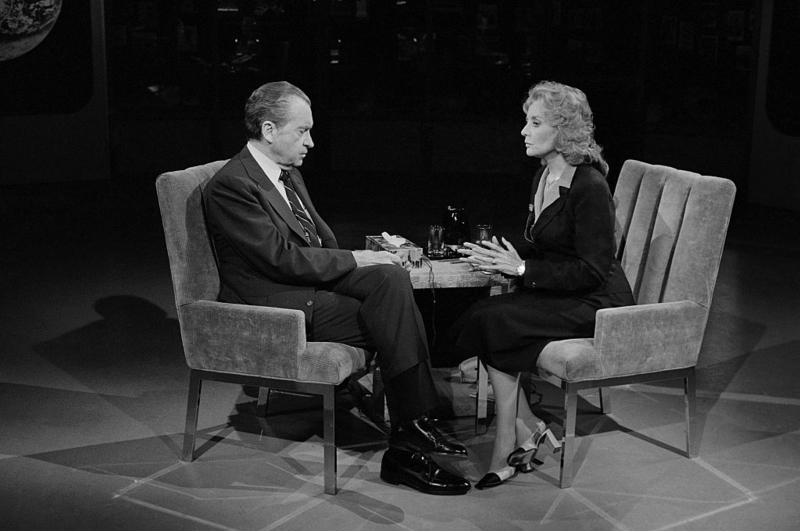
This gave viewers the opportunity to see a different side of the country’s leader. To be able to interview any president is a privilege for most journalists but the fact that Walters was able to interview so many speaks strongly about her legacy as a journalist.
The Interviewer, Not the Interviewee
Interviews may be riveting and informative for viewers and interviewers, but the interviewee; can often involve personal, probing questions and frazzled nerves. Barbara Walters did not like to be interviewed, perhaps because she knew the process so well.
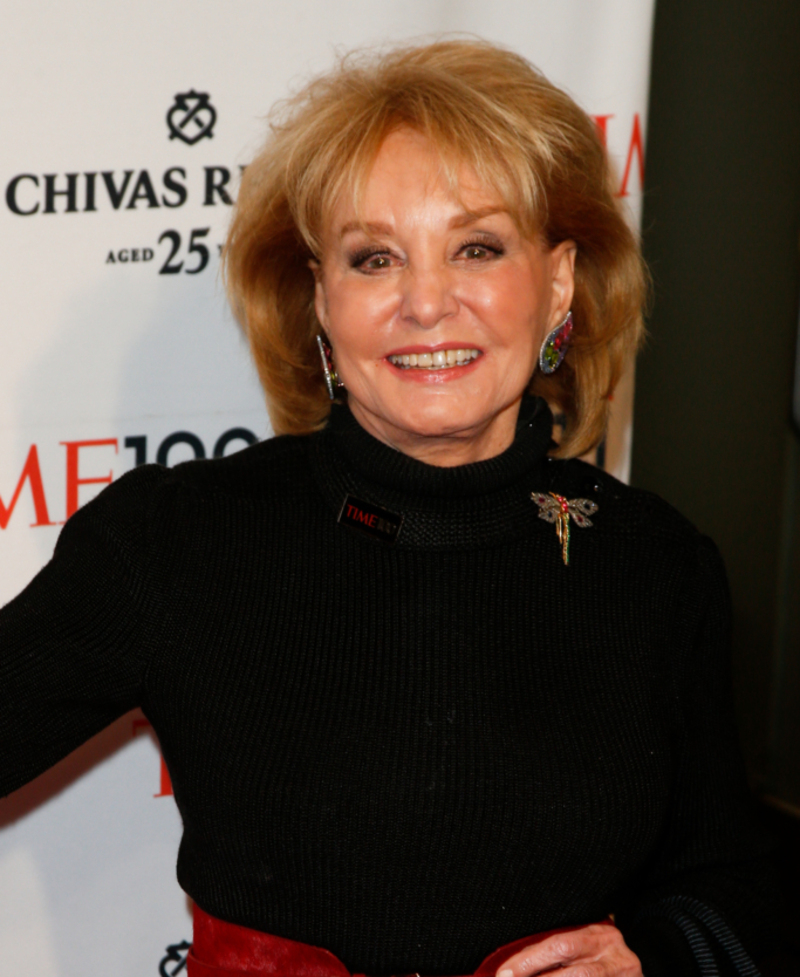
She even announced her disdain for it during an interview she had with "Vanity Fair" in 2014, the year she announced her retirement. “I hate it,” were her words. She went on, “You will find that I’m very hard to interview.” Despite her dislike for the process, Walters was more than familiar with how to navigate the interview arena.
Down to Earth
While others may hold Walters for being a highly successful, pioneering feminist, she had a humble opinion of herself and her work. She confessed to "Vanity Fair" that she neither sees herself as a maverick nor an icon. Unfazed by the accolades, she said that she simply lives her life like anyone else and focuses on her work.
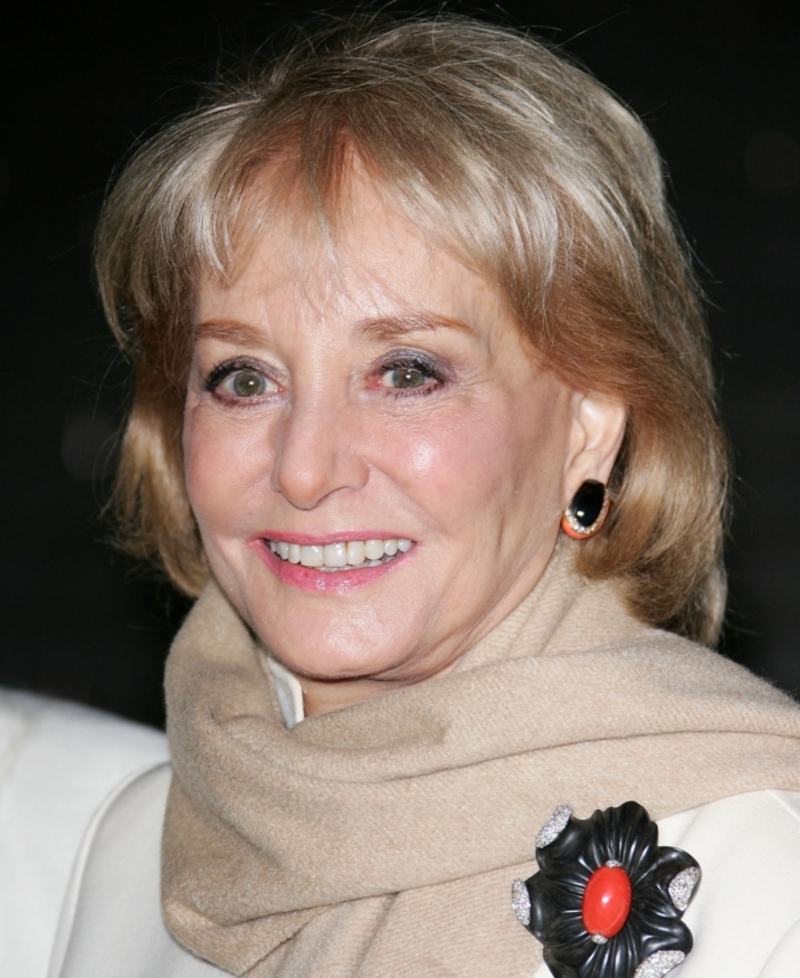
With a direct focus on excellence in her work, it’s easy to see why she was able to have such a stable, meaningful, and long-standing career. Over the years, Walters demonstrated the tenacity and work ethic required to thrive in the world of TV journalists.
Shaking Up the World of TV
Colleague Katie Couric admired Walters’s ability to maneuver over the obstacles that women often face in the workplace. But Walters was also concerned about making sure more people were represented on TV. Sherri Shepherd, Walters’s co-host on "The View," said that she had a hand in making sure talk shows featured diversity.

Though she may have endured mocking and criticism over the years, Walters had the intuition and foresight to see the important things that were missing on TV.
Known For Her Unique Journalistic Style
Walters's ability to ask unassuming questions that revealed the character of the interviewee became known as “personality journalism.” Most of her interviews benefitted from this approach, but her interview with Katharine Hepburn did not. Originally, the actress had refused to be interviewed, and when she did agree, she requested to meet with Walters first.
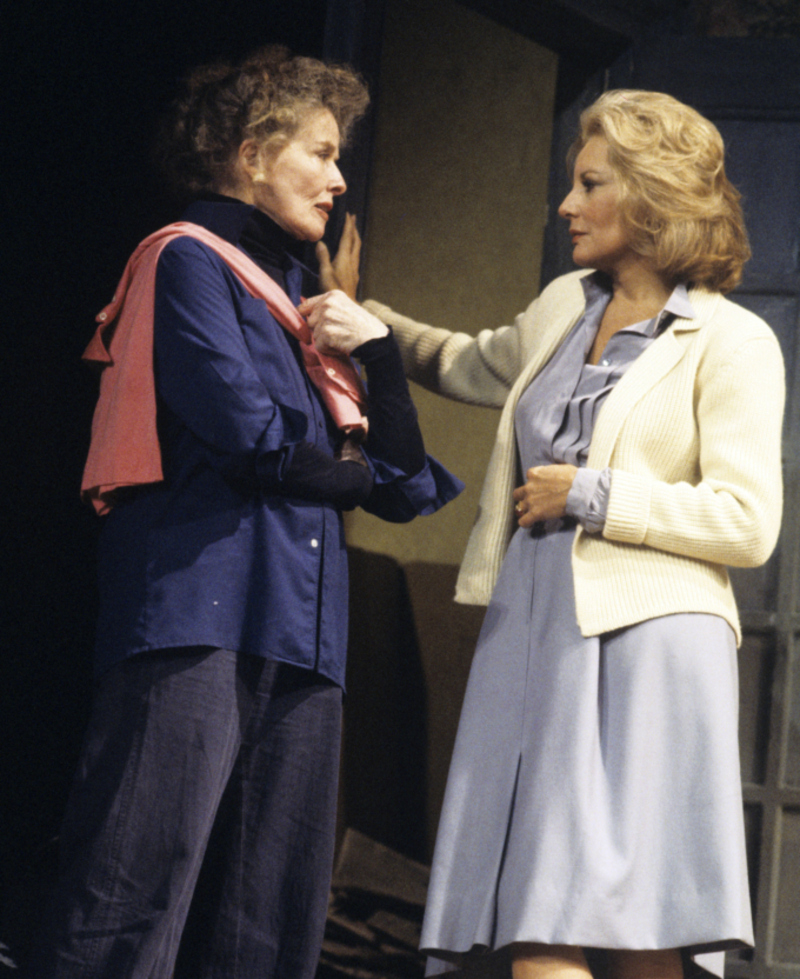
In an attempt to add interest and personality to the interview, Walters asked Hepburn: “If you were a tree, what kind would you be?” Hepburn responded: “An oak," because they’re “strong and pretty.” But before Hepburn’s answer, Walters found herself facing a taciturn woman and a challenging interview subject.
Head to Head With Hepburn
Walters walked in, ready to get to know Hepburn better, but reportedly the actress greeted her angrily: “You’re late. Have you brought me chocolates?” Walters said she did not bring any chocolates, but after that day, she knew she would have to. Despite the difficulties, the two met several times after that, mostly in Hepburn’s living room.

Though it was a rocky start, Walters eventually succeeded in coaxing the softer side out of Hepburn. The actress opened up and shared her opinions on careers, marriage, and children. It was also fascinating for Walters, who said that Hepburn’s views stuck with her for years after.
The Impact of Her Interviews
She may have been well-known for bringing personality to her interviews, but Walters also came face-to-face with important historical figures. In 1977 she held an interview between Israeli Prime Minister Menachem Begin and Egyptian President Anwar Sadat. In fact, Walters interviewed many world leaders from all walks of life in the latter part of the 20th century.

She had the experience of speaking with Margaret Thatcher, Fidel Castro, and Indira Gandhi, among others. And she has also interviewed pop culture icons like Lucille Ball and Beyoncé. It makes one wonder what interview most impacted Walters. She said it was her conversation with Robert J. Smithdas, a deaf-blind man who devoted his life to benefiting those who were deaf and blind like himself.
The Real Face of Fidel Castro
The year 1977 also held a significant interview for Walters as she interviewed Cuban leader Fidel Castro. She spent two days speaking with him. And, perhaps to the surprise of viewers, the footage revealed his personality as carefree, charming, and even humorous. But Walters made sure to ask hard-hitting questions. His reply was eye-opening: “Barbara, our concept of freedom of the press is not yours.”
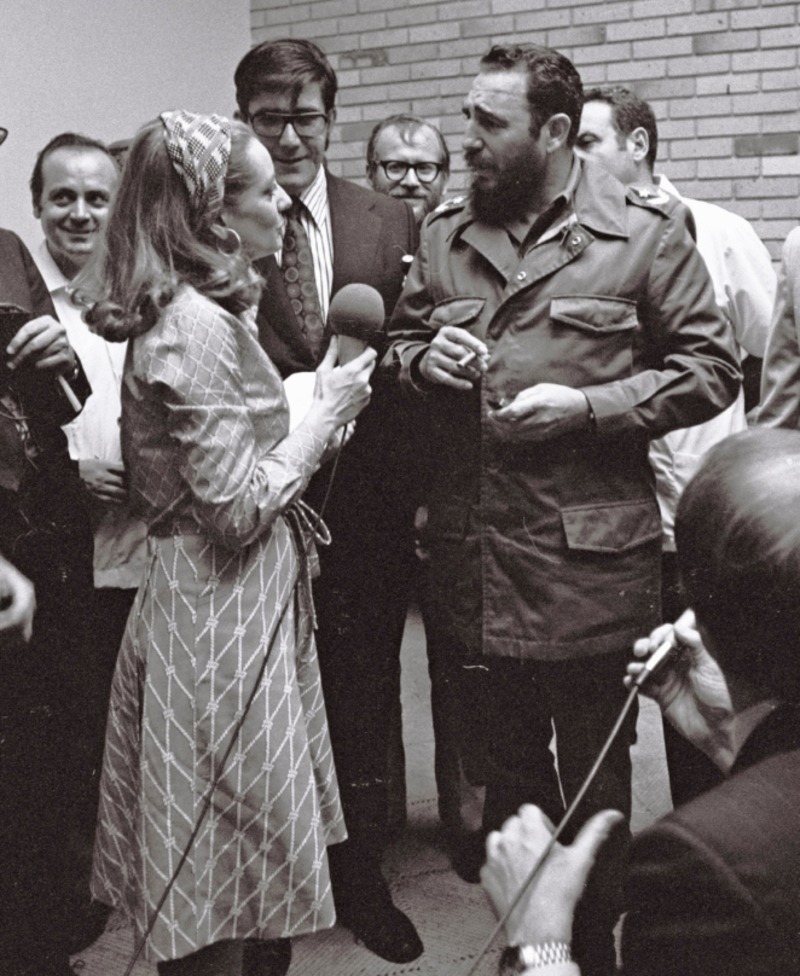
Walters concluded the broadcast by stating how powerfully they disagreed on the concept of freedom. It was interviews like these that established Walters as an intelligent, intuitive, and steely journalist who was not afraid to peel back the layers and uncover the core issues.
The Riveting Interview of 1999
One of her most intense interviews was on March 3rd, 1999, with Monica Lewinsky. A record 74 million people (the highest-ever rating for a news program) tuned in to see the conversation between the two women. One of her heaviest questions for Lewinsky was, “What will you tell your children when you have them?” It was a direct yet intimate question for which Lewinsky gave an honest answer: “Mommy made a big mistake.”

Walters then took the initiative to amplify the drama surrounding the interview as she turned to the viewers and said, “And that is the understatement of the year.” She was unwilling to miss an opportunity to create a memorable moment with her words. By this time, viewers certainly felt that they knew the journalist they had let into their homes very well. But, as Barbara Walters herself would know, to fully understand a person, you must examine their past.
The Importance of Her Past
Barbara Jill Walters was born on September 25th, 1929, In Boston, Massachusetts. She was born to Jewish parents who were descendants of refugees from the former Russian Empire. Walters had a brother, Burton, who died of pneumonia in 1944, and an older sister Jacqueline, who was born mentally disabled and passed away from ovarian cancer in 1985.
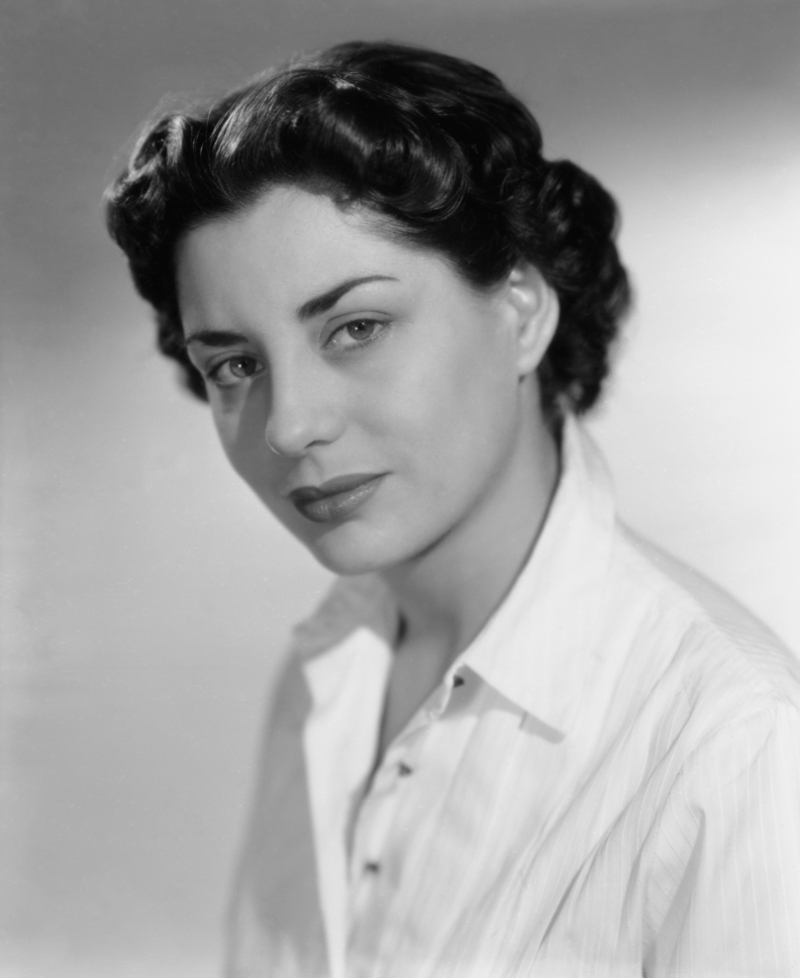
Her father, Lou, managed the famous Latin Quarter nightclub and worked as a Broadway producer and booking agent. Walters recounts that her father was quite successful throughout his show business career and that she remembers him taking her to nightclub show rehearsals that he both directed and produced.
A Unique Childhood
Because of her father’s work, the family moved around consistently from Massachusetts to Miami Beach to New York City. Being around celebrities as a child helped Walters develop a comfort around notable figures when she entered into journalism as an adult.

Walters grew up around singers, dancers, actors, and comedians. From her little spot in the lighting booth, she was able to observe a lot behind the scenes. These experiences helped her understand that famous figures were truly just human beings with real problems like everyone else.
Her Father’s Influence
Walters is also an avid reader and has been since she was a young girl. She would often read while hanging out with her father at the Latin Quarter club. Her studious habits paid off when she graduated with a B.A. in English from Sarah Lawrence College. Walters then immediately began looking for work in New York City.
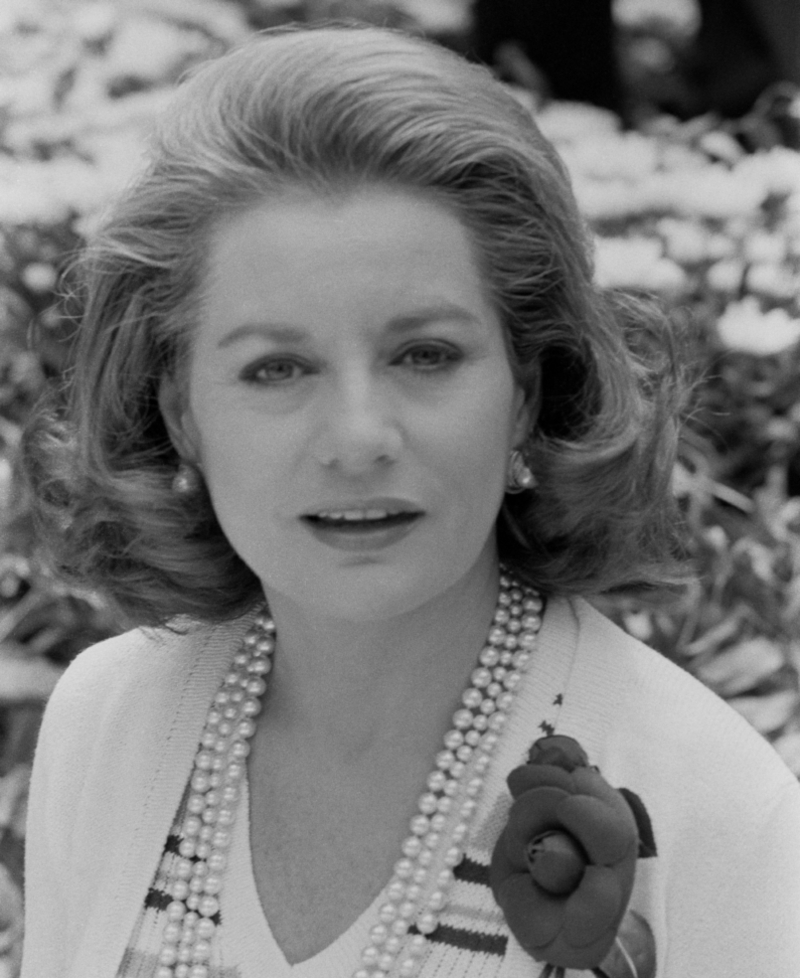
Unfortunately for her father, nightclubs had become far less popular by now, and Lou Walters began drowning in debt. His financial problems became so bad that, when Walters was 28 and working in the radio-and-television department of a PR firm, her father attempted to take his own life with prescription medicine.
The Breadwinner
Walters stayed by her father’s side as he was taken via ambulance to the hospital. She eventually found out that her father owed taxes that he had no money for, and so she took it upon herself to help the family out. Walters then began providing financial assistance to both her parents and older sister. Though Walters’s young adult years were not adventurous and carefree, it was during these tough times that she learned to hone and value her work ethic. “In my 20s, when I should have been having this wonderful time, I was working and supporting my family,” Walters confessed.
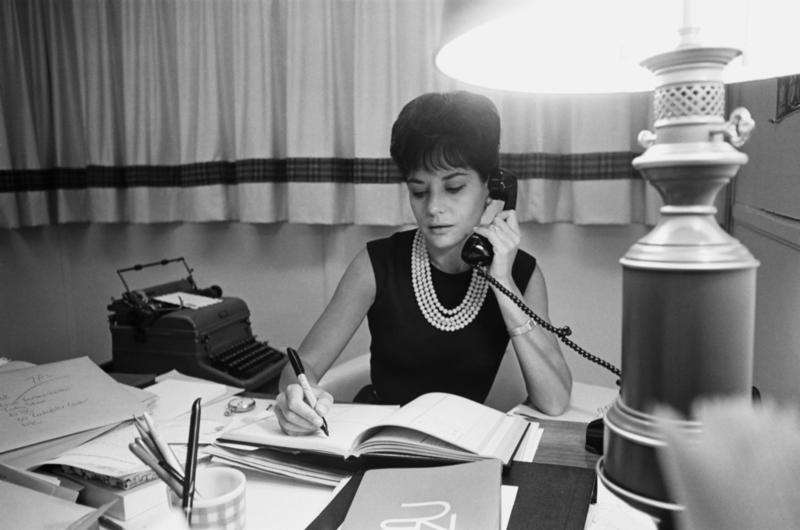
She went on to explain why, as a woman, this became a defining season for her: “Most men, if they hated the job, or if it was boring to them or beneath them, they had to work. The women didn’t. So the women got married, or they took time off, or they took a trip if they had the wherewithal. I had to work. That’s the difference. That’s why I am where I am today.”
Working Her Way Up
To the surprise of her fans, Walters considers her “being in front of the camera... such an amazing accident.” She began working for about a year at a small advertising agency, then at the NBC network affiliate WNBC, working in publicity. She worked hard and eventually landed the opportunity to produce a 15-minute kids' program called "Ask the Camera" in 1953. She also produced a show for TV host Igor Cassini but decided to leave the role after her boss pressured her to marry him.

Walters’s next stop was at NBC’s "Today Show" as both a writer and a researcher in 1961. She then became known as the show’s “Today Girl,” handling routine assignments such as the weather. In her autobiography, she expressed that, at this time, as a woman, you were not taken seriously enough to be allowed to handle the “hard news.”
The Next Steps
The women who preceded Walters as “Today Girls” included Florence Henderson, Helen O’Connell, Estelle Parsons, and Lee Meriwether. Though she faced some obstacles as a woman in the field of journalism at this time, it took less than a year for Walters to become an active reporter. She was able to develop, write, and edit reports and interviews of her own. This was pioneering work at the time. Walters had a congenial relationship with host Hugh Downs for a while, but after Frank McGee was named the new host, he refused to do joint interviews with her unless he was privileged to ask the first three questions.
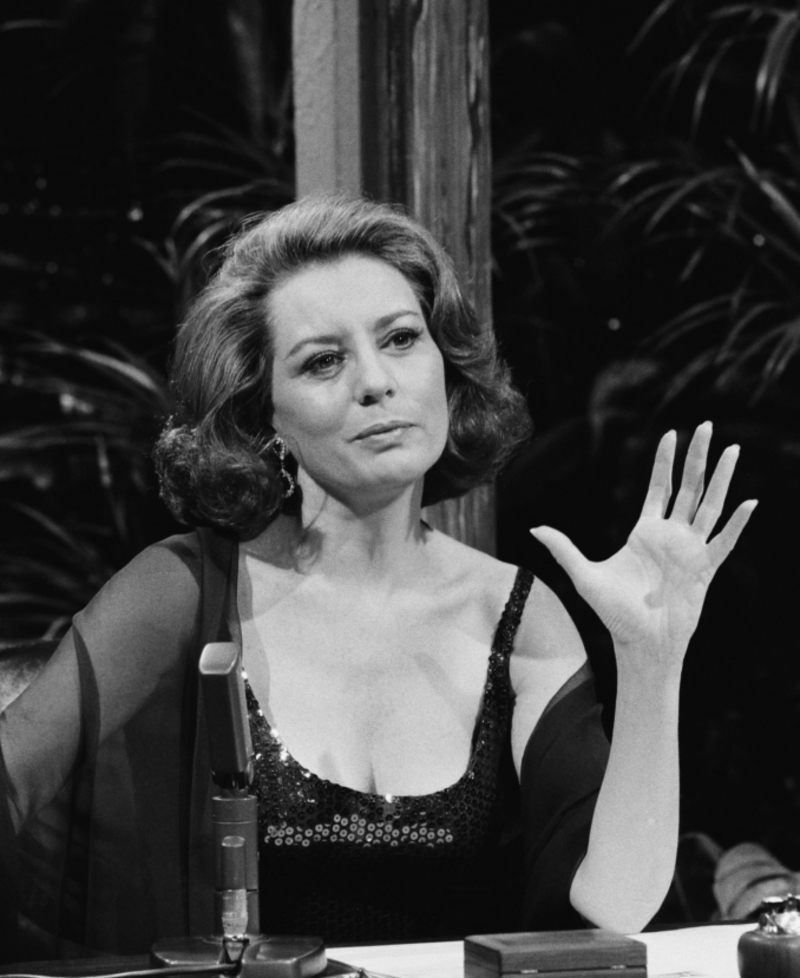
Unfortunately for Walters, she was only named co-host of the show once McGee died in 1974. Only then did NBC designate her as the show’s first female co-host. An interesting side fact is that, in 1971, Walters was able to host her own local NBC affiliate show called "Not for Women Only," which aired in the mornings after the "Today Show." But Walters was due to step into a new role on a new show. Little did she know it would be the breakthrough that she needed.
A Historical Moment– ABC Evening News
In 1976, Walters came face-to-face with an incredible offer from ABC. She was offered one million dollars a year for five years if she moved to the network. She took it, and history was made as Walters was now television’s first network anchorwoman. Along with being an anchorwoman, she was also a host and producer for four prime-time specials and documentary programs.
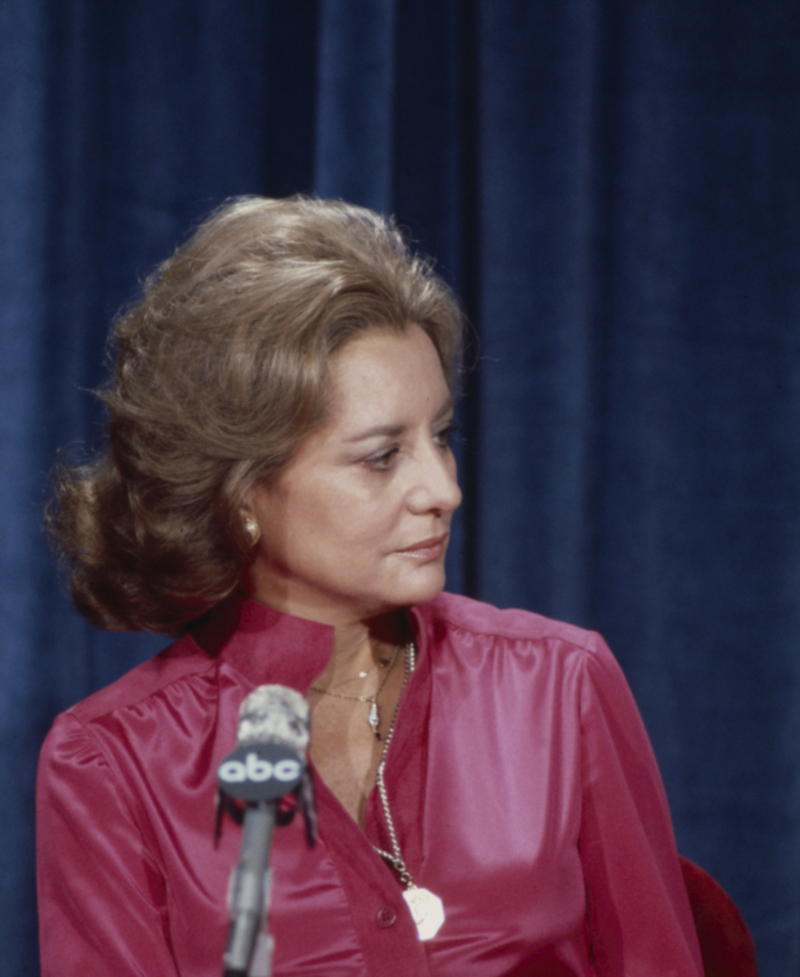
But Walters’s newfound success didn’t come without a downside. Her glittering contract with ABC caused criticism and jealousy. Her income from NBC had doubled, and her show "Not for Women Only" made her the highest-paid newscaster of all time (during that time).
Her Unique Success
Walters may have had an unorthodox approach to interviewing her subjects, but her techniques were groundbreaking. In fact, she decided to write a book about her career. Walters revealed the “secrets of her success” in her book "How to Talk With Practically Anybody About Practically Anything." It’s been said that Walters was so adept at interviewing because she knew what the public wanted to know.

But with an avant-garde approach came criticism. Walters’s interviewees claimed her nervousness was distracting. In contrast, others said she was overzealous, which led to mistakes (like the time she grabbed a different network’s microphone to get an on-the-spot interview). Thankfully for her, she had far more admirers than critics. Walter Cronkite himself was impressed with her interviewing talents.
Enduring Criticism and Hostility
Yet, the criticism Walters faced was heavy at times. Studio executives were skeptical of Walters bringing a “show biz tint” to often bland news segments. They also thought that the public may not have been ready to accept a female news anchor. According to ABC’s private polls, before Walters’s generous contract, only 13 percent preferred a male anchor.
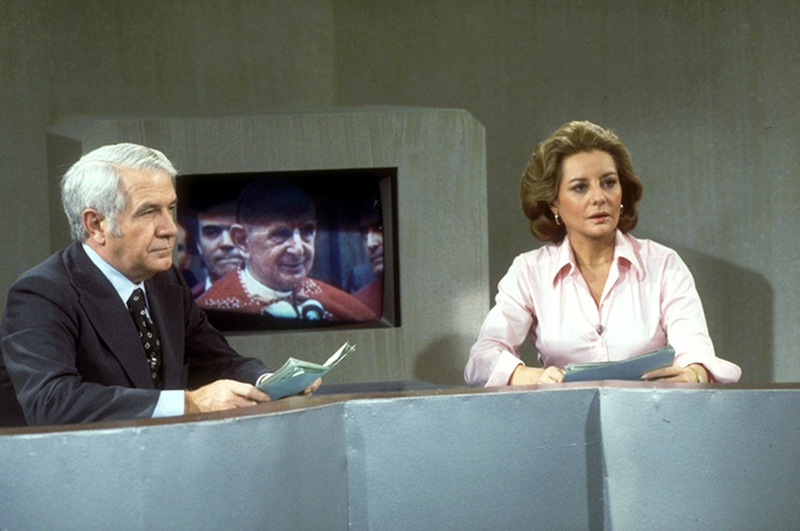
Walters was not silent about the criticism she was facing. She recalled the undeniable hostility she received from her co-anchor Harry Reasoner when the two were co-anchors on the ABC Evening News from 1976 to 1978. Reasoner claimed that he did not want a co-anchor, though he worked with former CBS colleague Howard K. Smith every night on ABC for several years.
A "20/20" Legacy
In 1981, after five years together on ABC, Reasoner went back to CBS News. Thankfully, Walters and Reasoner were able to have a congenial interview on "20/20". "20/20" was probably Walters’s signature show that her viewers would best remember. But, after 25 years as both co-host and chief correspondent of the riveting show, it was time for yet another important career move.

In the final season of "20/20," Walters had a line up of special interviews. Her first one was with Senator Hillary Rodham Clinton, followed by an interview with Martha Stewart before her trial and again after her sentencing, an in-depth conversation with the Osbournes, and also a sitdown with actor Robert Blake (which was his first time speaking publicly after his arrest).
A New Point of View
In 1997, Walters joined the daytime talk show, "The View," which she co-created and co-produced with business partner Bill Geddie. The View first aired on August 11, 1997, and was described by Walters as a representation of “different generations, backgrounds, and views.” The show was a big success and landed her a Daytime Emmy for Best Talk Show in 2003.
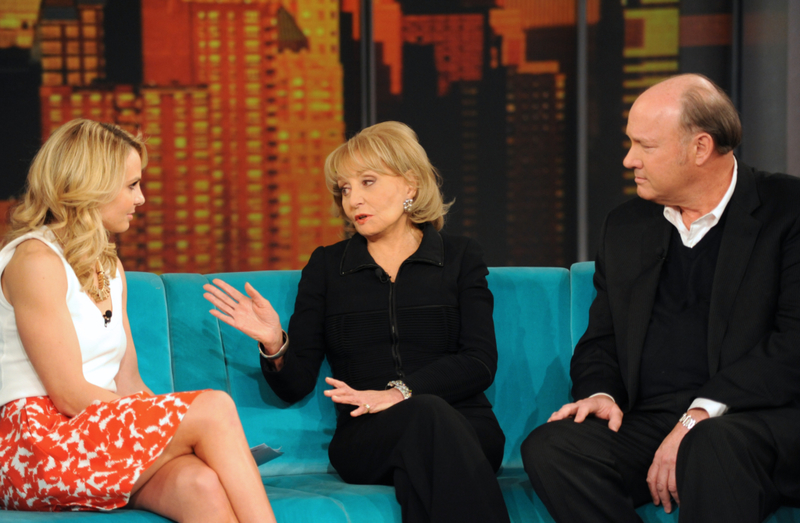
In 2009, Walters also won Best Talk Show Host (along with Joy Behar, Whoopi Goldberg, Elisabeth Hasselbeck, and Sherri Shepherd). In 2014, Walters decided to step down as a regular co-host (though she would act as a guest co-host throughout 2014 and 2015).
What She Regrets
Does a woman this successful have any regrets? Walters confessed that one of her biggest regrets was that she did not spend more time with her daughter, Jackie. She said it was the intense demands of her career that kept her from being closer to her daughter’s side.
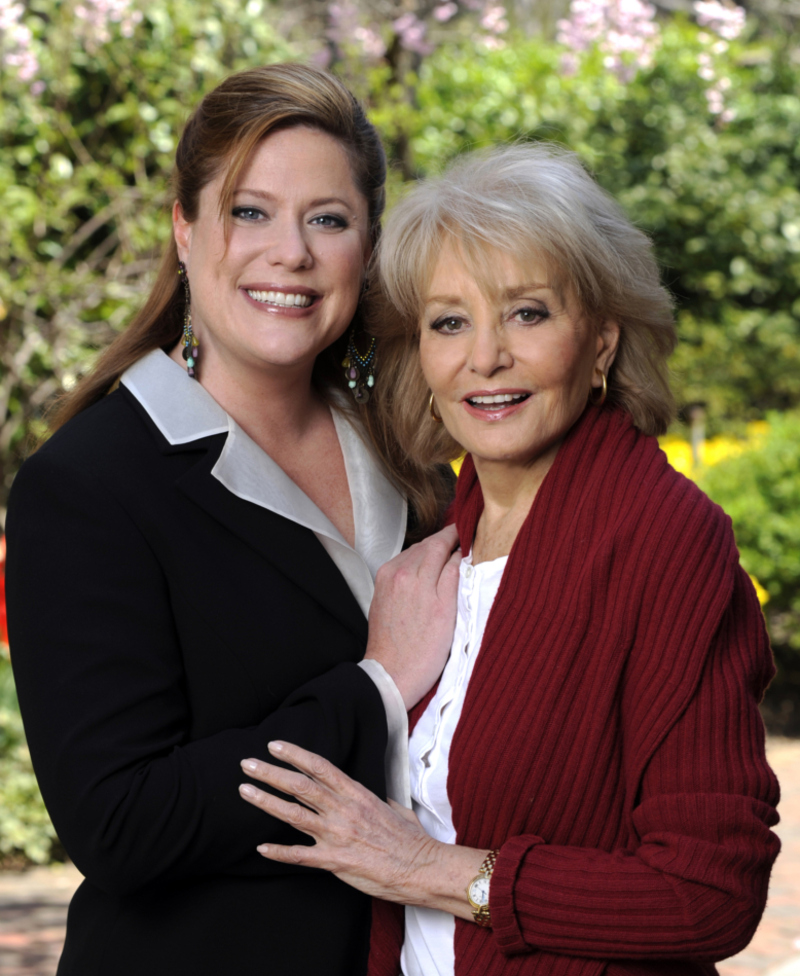
Walters expounded on this in an ABC news special about her life. “On your deathbed, are you going to say, ‘I wish I spent more time in the office?’ No. You’ll say, ‘I wish I spent more time with my family,’ and I do feel that way. I wish I had spent more time with my Jackie.” In her interview with longtime business partner Bill Geddie, Walters also shared how work had further interfered with her relationships.
Many Losses
Walter was very candid in sharing that she had multiple miscarriages. But her painful losses did not diminish her desire to have a child. Walters was deeply devoted to her career, which unfortunately took a toll on her marriages. In fact, she was married four times to three different men. Her first husband was Robert Henry Katz, a prominent business executive and former Navy lieutenant.
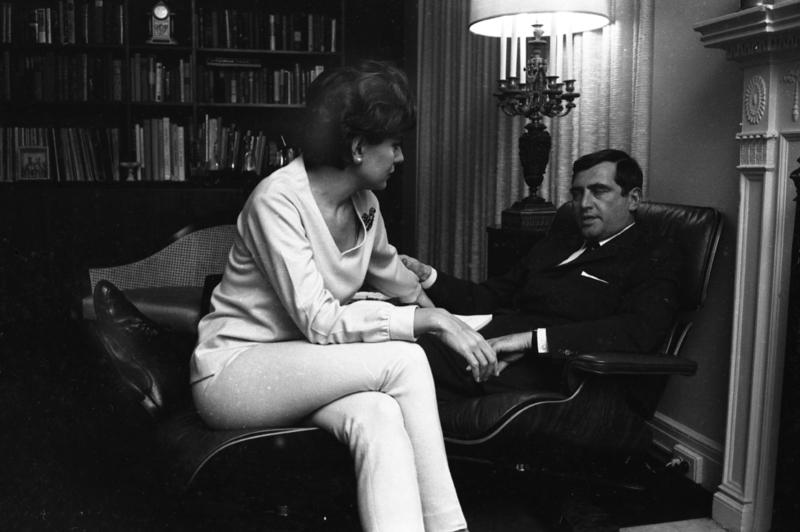
The couple married in 1955, but the marriage was annulled before their one-year anniversary. Her second marriage was to Lee Guber, a theatrical producer and theater owner. Walters and Guber married in 1963 and later divorced in 1976. The two shared a daughter, Jacqueline Dena Guber, who was born in 1968 and adopted by them in the same year. Jacqueline was named after Walters’ sister.
More Marriages
Her third husband was Merv Adelson, the CEO of Lorimar Television. They married in 1981 and divorced in 1984. But Adelson must have meant a lot to Walters as she remarried him in 1986. Sadly though, it was not to last, and the two also divorced a second time in 1992. After being in multiple marriages, Walters started dating a lawyer named Roy Cohn.
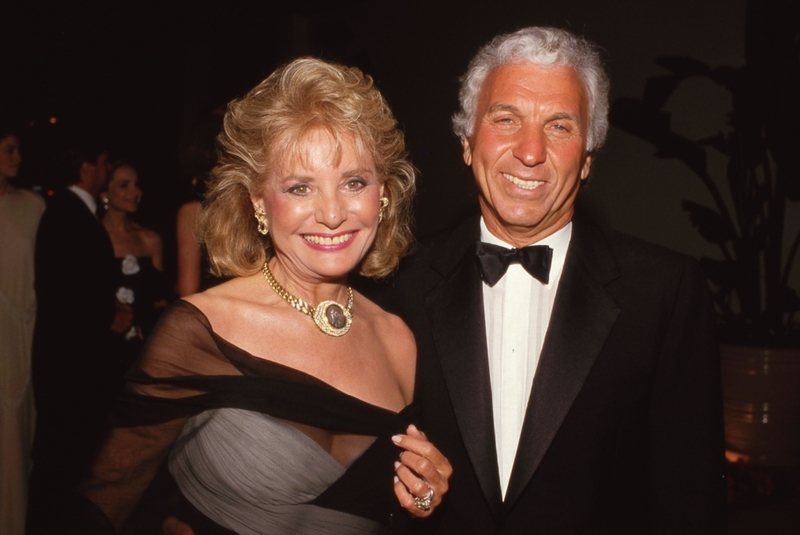
Controversially, Cohn claimed that he proposed to Walters the night before her wedding to Guber. Though Walters denies that claim, she did explain that her devotion and respect for Cohn was out of gratitude for helping her adopt Jacqueline. She had also been deeply grateful to him for helping her father with his legal problems.
Not Her Biggest Success
Reportedly, Walters was romantically linked to a handful of important men, including Alan Greenspan in the ‘70s and John Warner in the ‘90s. In her autobiography, Walters also claimed that she had an affair in the ‘70s with Edward Brooke, a married US Senator from Massachusetts. Apparently, the two ended it to protect both of their careers.
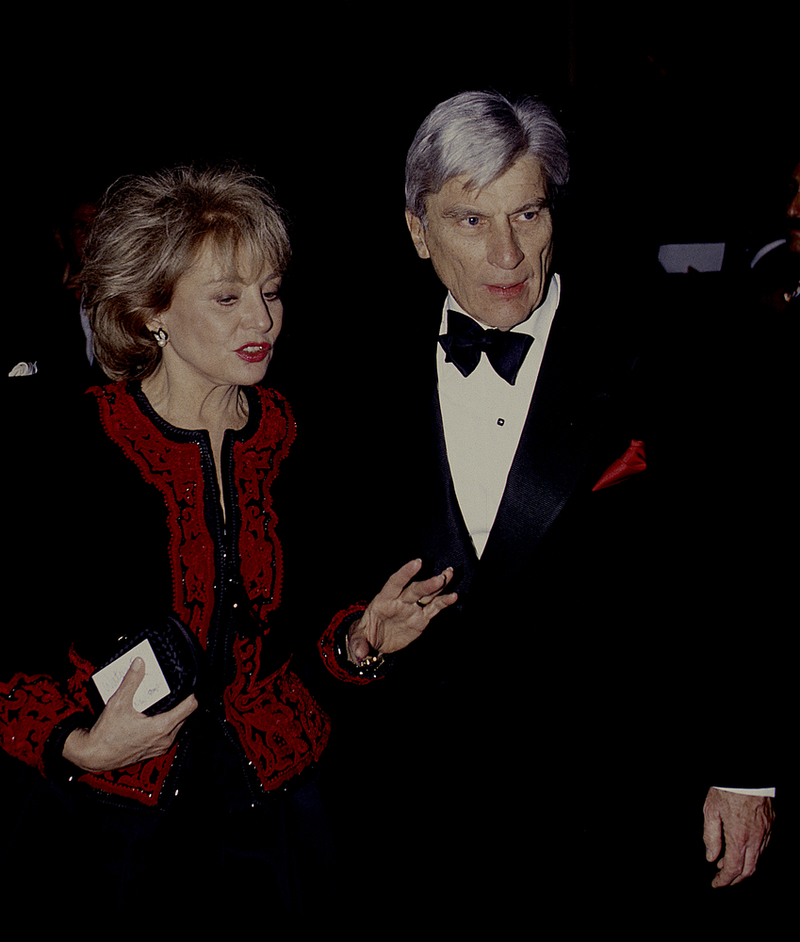
Though Brooke was married, it was unclear whether Walters was at the time. She was also candid about her failures and confessed that she wasn’t “very good at marriage. It may be that my career was just too important. It may have been that I was a difficult person to be married to, and I just seem to be better alone. I’m not lonely; I’m alone.” Being alone did not seem to bother Walters, but in 2014, she stated that her biggest regret was that she didn’t have more children.
Her Legacy
Walters did her best to keep daughter Jacqueline out of the spotlight. It was apparently a struggle for her to have such a famous mother. “Jackie has found it difficult all her life because she wants to be anonymous; she just doesn’t like to be a celebrity,” Walters revealed. “She may be the only one in the world who doesn’t like to be a celebrity.”
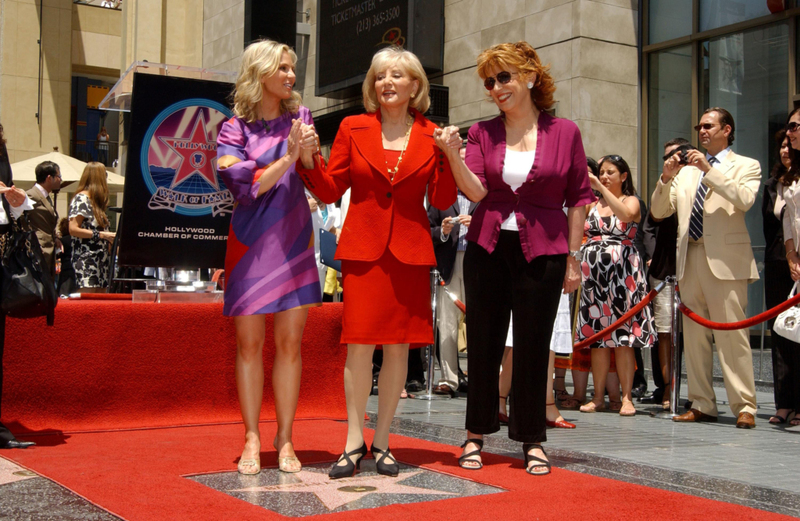
In 1989, Walters was inducted into the Television Hall of Fame, and in 2007, she received her star on the Hollywood Walk of Fame. Her success is undeniable as she has won Daytime (33 to be exact) and PrimeTime Emmy Awards, as well as a Women in Film Lucy Award. She also won a GLAAD Excellence in Media award.
Her Daughter Jackie
Daughter Jacqueline “Jackie” Danforth was born and adopted by Walters and her then-husband, Lee Guber, in 1968. Walters and Guber heard from a couple they knew that they were looking into adoption themselves. The couple had the opportunity to adopt Danforth but wanted to adopt a boy.
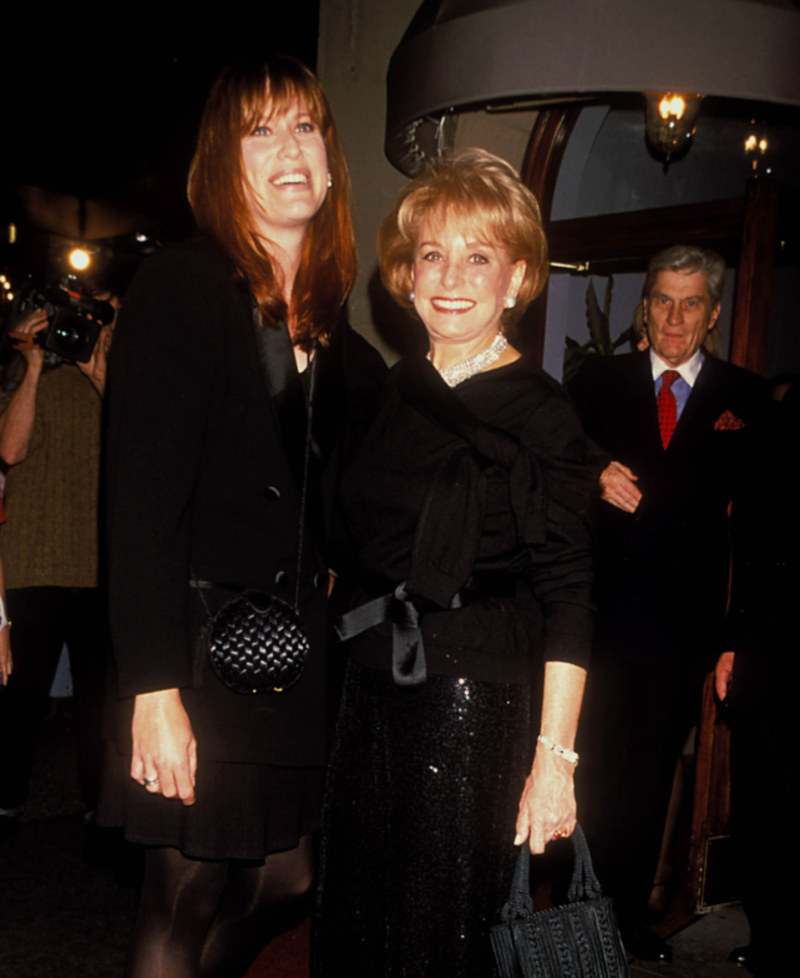
The door then opened for Walters and her husband to adopt the baby girl. Despite being very loved by her mother, Danforth struggled to find the stability she needed as a teen and battled substance abuse. Though she has had her struggles, Danforth was able to enroll in a program to help her overcome her addiction.
Presidential Interviews
Throughout her career, Walters has been able to interview every president and first lady, starting with Richard and Pat Nixon through to Donald and Melania Trump. She was even able to interview them in unique settings, like when she interviewed Ronald Regan at his Santa Barbara ranch.

This gave viewers the opportunity to see a different side of the country’s leader. To be able to interview any president is a privilege for most journalists but the fact that Walters was able to interview so many speaks strongly about her legacy as a journalist.
Staying Off of the Road
Though she’s used to manning the wheel of all of her interviews, fans may be surprised that Walters never had a driver’s license. Not only did she never get her license, but she also never had any intentions of getting one.

When questioned about it in a "Vogue" interview, Walters gave no satisfactory answer but simply said it was a personal choice.
Keeping a Healthy Heart
In 2010, Walters had to undergo heart surgery to replace an aortic valve. She was 80 at the time and needed surgery due to shrinking valves. She had been suffering from chest pressure, which doctors had been monitoring.

Thankfully, after successful surgery, Walters was able to take a few months to recover before she went back to work.
The Retired Life
So how would someone with such a demanding schedule for so many decades spend the first part of their retirement? Walters said that, along with traveling abroad with a friend, she was going to sleep in till the afternoon.
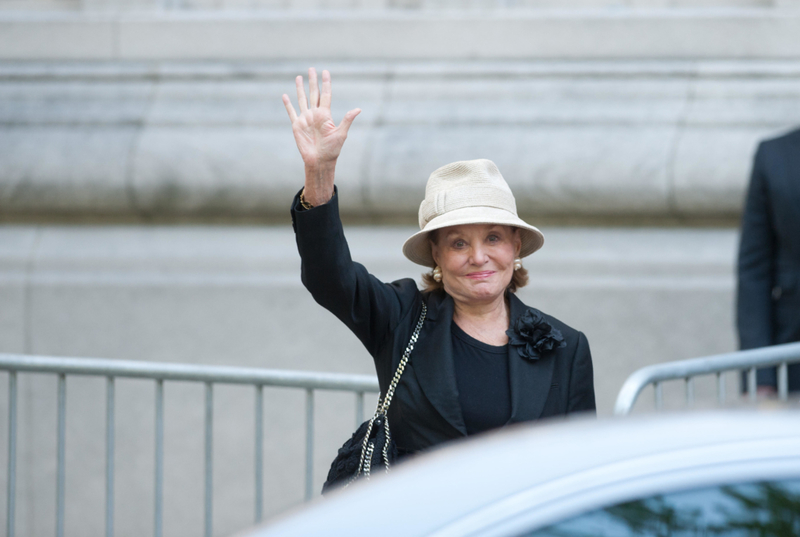
Both of these plans were a great way to celebrate freedom from an alarm clock and an intense schedule.
An Unforgettable Interview
To be an exceptional journalist requires the right ratio of boldness, empathy, intelligence, and a profound curiosity about the human experience. It’s safe to say that, because of Barbara Walters’s success in the field of journalism, she had these qualities in excess. She had the opportunity to interview actor Christopher Reeve after a horseback riding accident left him paralyzed.
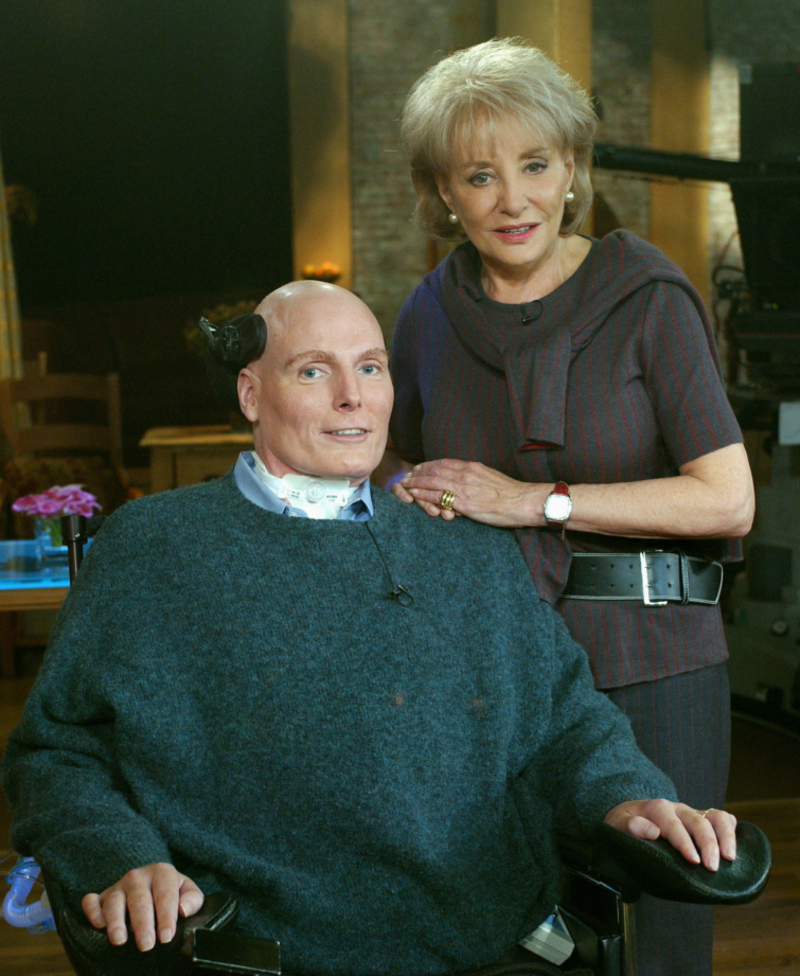
Walters recounted, with thoughtfulness and reverence, Reeve’s journey after his accident, which began in utter despair. And Reeve’s recounted to her how a laugh from his friend Robin Williams kickstarted his journey to hope and a new life. It took a savvy journalist to gain the trust of their interviewees.
A Friend and a Mentor
After her personal experiences, Walters became an advocate for female journalists in her circle. Journalist Katie Couric has spoken about her mentorship in her own life.
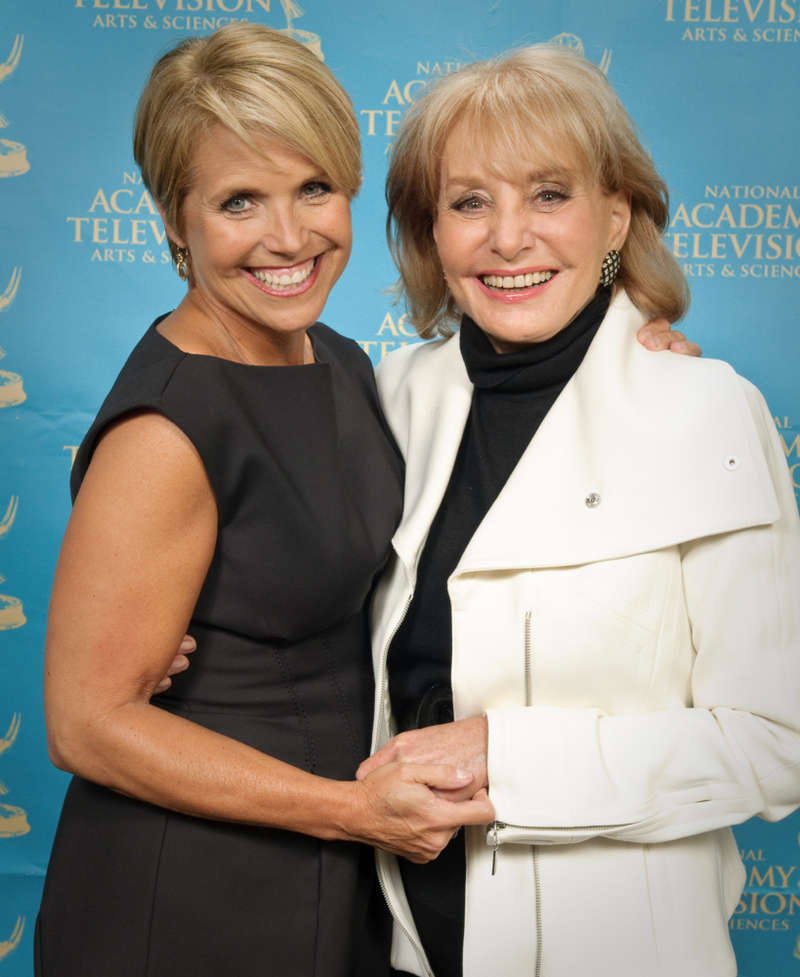
She said that Walters would reach out to her with support, advice, and encouragement as she navigated her own career. Couric was very grateful to have both a mentor and a friend in a seasoned journalist who was willing to invest in others.
Barbara Behind the Scenes
Almost everyone knew her on-camera persona, but who was Barabara Walters behind the cameras? Friends and colleagues described her as warm but feisty, witty and intelligent but also caring and even “maternal.”
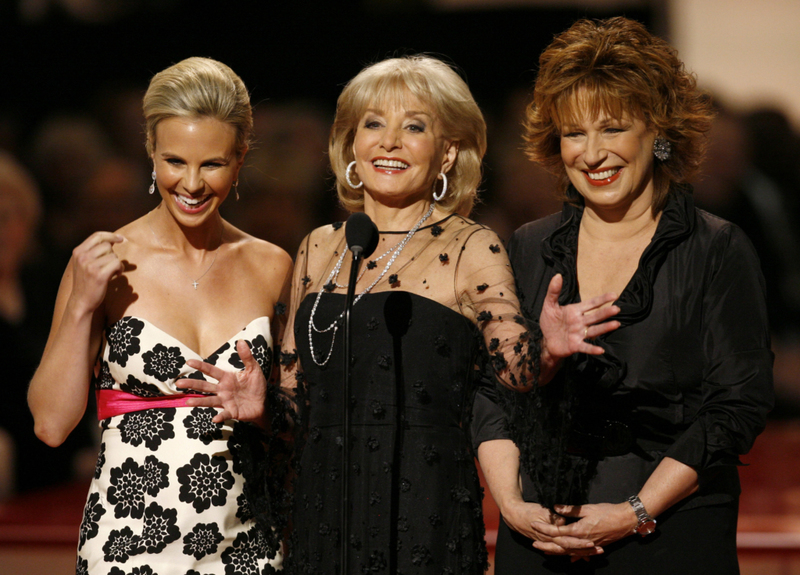
The many sides of Walters were most certainly part of what made her an adept journalist and also highly respected and loved by those closest to her.
Turning the Tables
So, who had the privilege to interview Barbara Walters? In 2004, talk show queen Oprah Winfrey was able to sit down with Walters and ask her the questions that were most likely on the minds of many. Winfrey asked her many revealing questions about why she was leaving "20/20" if she had ever been nervous before interviewing someone, and about some of her best-known interviews.
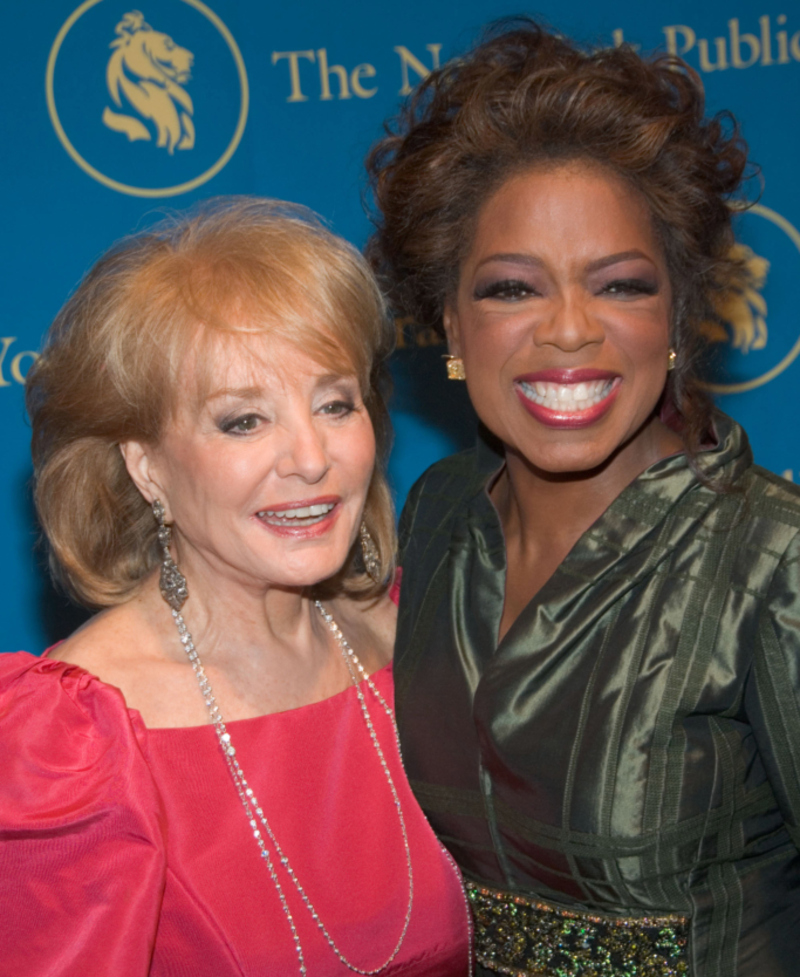
Winfrey also told Walters how she had been a mentor for her. One of the most fascinating revelations from her interview was that Walters confessed she never gets nervous when she interviews her subjects!
The Impactful Interviews
With all of the well-known figures she has interviewed in her career, you would wonder what interviews were most impactful for Walters herself. In her interview with Winfrey, Walters said that was during her time with Richard Pryor.
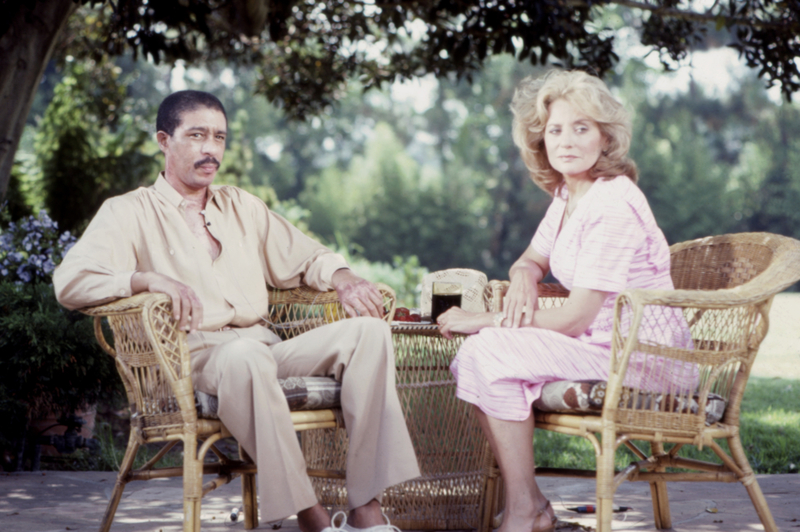
She was able to interview Pryor a total of four times, which allowed her to create a relationship with her interviewee. Walters said that he was a complex man who was also tragic in some ways.
Margaret Thatcher
Another quality that set Walters apart as a journalist was that she valued the relationships she had with some of her interviewees. In the same interview with Winfrey, she said that her interview with Prime Minister Margaret Thatcher was also greatly impactful for her.
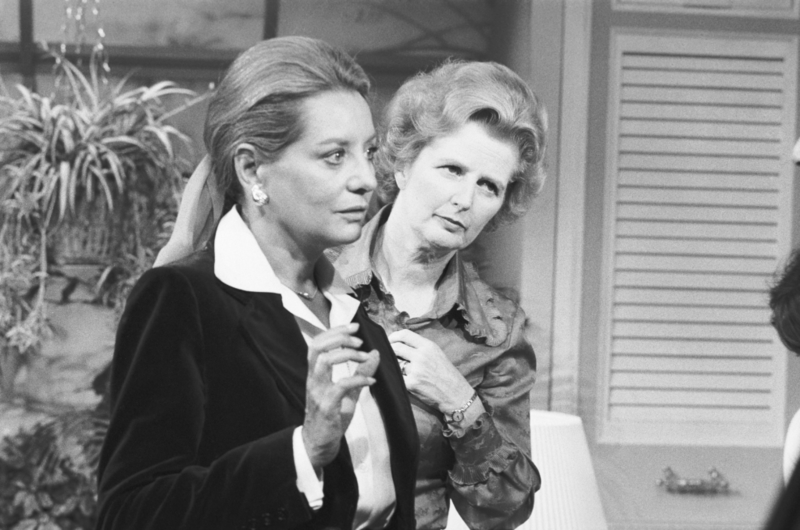
This was another person that Walters was able to sit down with multiple times, which allowed her the unique opportunity to be a part of Thatcher’s journey. She was a witness to who Thatcher was before she was prime minister and while she was in office.
Shah Mohammad Reza Pahlavi
All of the discrimination Walters endured as a female journalist helped prepare her for an interview with the leader of Iran in 1977. She sat down with Shah Mohammad Reza Pahlavi and his wife to discuss the intense political situation in the area at that time.
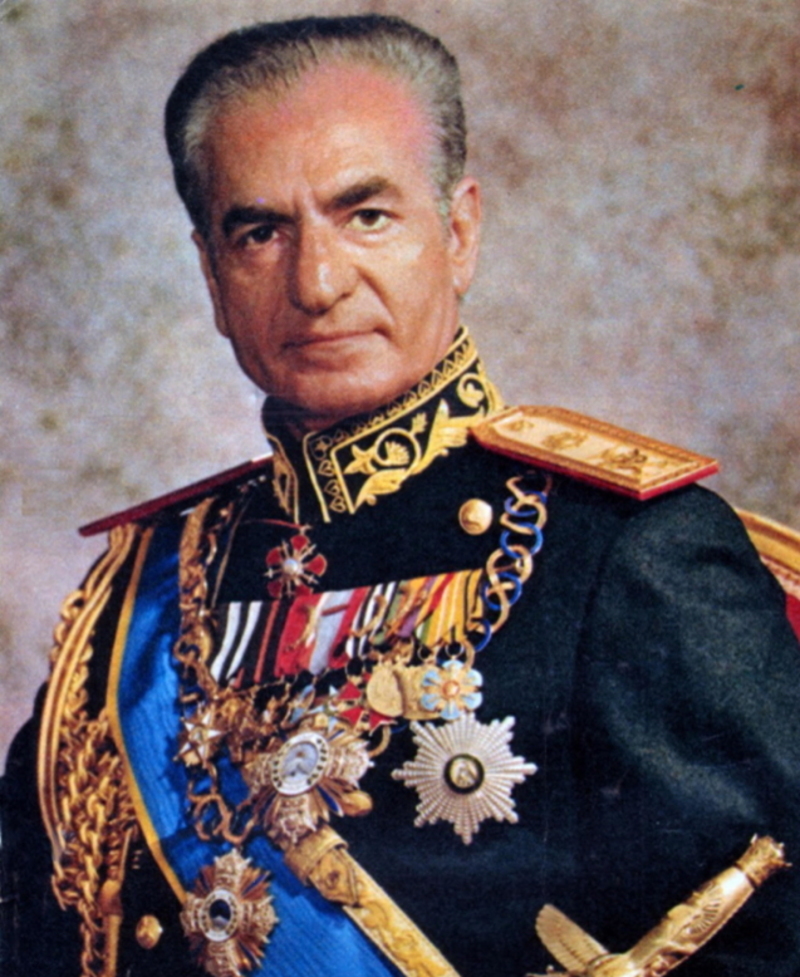
Walters directly asked him if he thought a woman could ever rule, to which the Iranian ruler replied that he thought women lacked the ability and intelligence to be leaders. Walters said she wondered what the conversation between him and his wife must have been like afterward.
What Made Her Speechless
Barbara Walters is known to hold her own when it comes to interviews, but one, in particular, left her speechless. When she was interviewing Jiang Zemin, a member of the Chinese Communist Party, she boldly asked him about the events in Tiananmen Square.
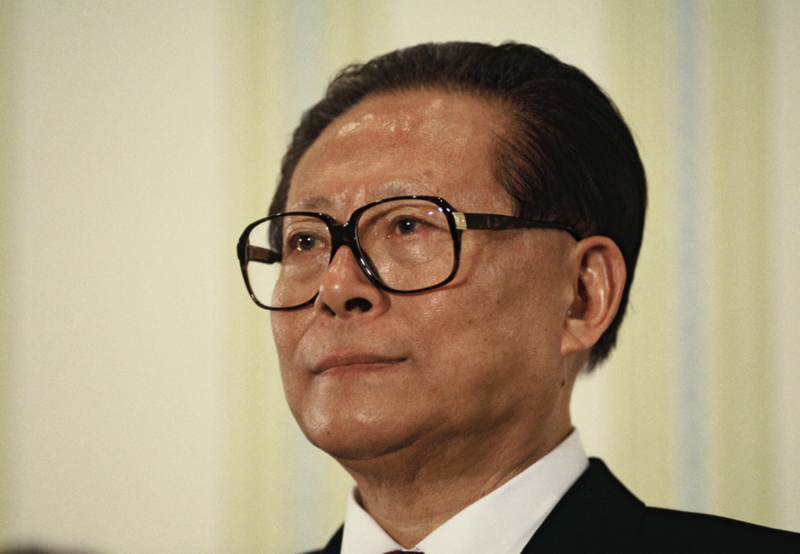
Unaffected, Zemin replied that it was “much ado about nothing.” His cold reply left Walters without words.
The Journalist and the Talk Show Queen
Walters had the opportunity to interview the talk show, queen Oprah Winfrey. In the interview, she asked probing questions about her very close friendship with gal pal Gayle King. She also had Winfrey address rumors about her being in a lesbian relationship with King, which she adamantly denied.
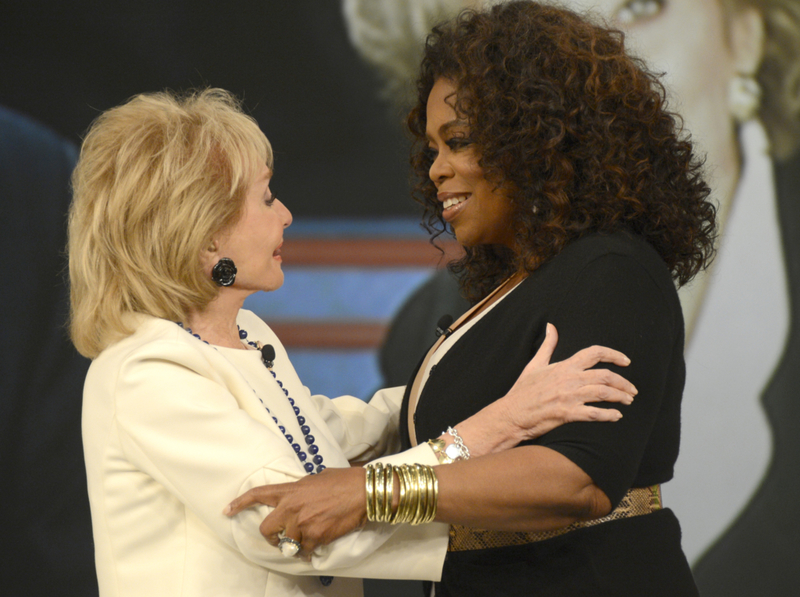
Winfrey declared to Walters that it deeply disturbed her that the public falsely believed this about her and that they would doubt her authenticity. It gave Walters a front-row seat to yet another demonstration of Winfrey’s vulnerable relationship with her viewers.
Walters and Putin
Walters was also able to interview Vladimir Putin in 2001. She was the first American journalist who had interviewed the Russian leader since September 2001.

As usual, Walters had no problem confronting the controversial figure with upfront questions.
Walters and Swayze
Best known for his iconic roles in "Ghost" and "Dirty Dancing," Walters had the opportunity to interview Patrick Swayze before he passed away in 2009. Swayze had been battling pancreatic cancer, and Walters sat down to discuss the actor’s life and career. Swayze was in high spirits until Walters played a video clip from a previous interview with him in 1988.
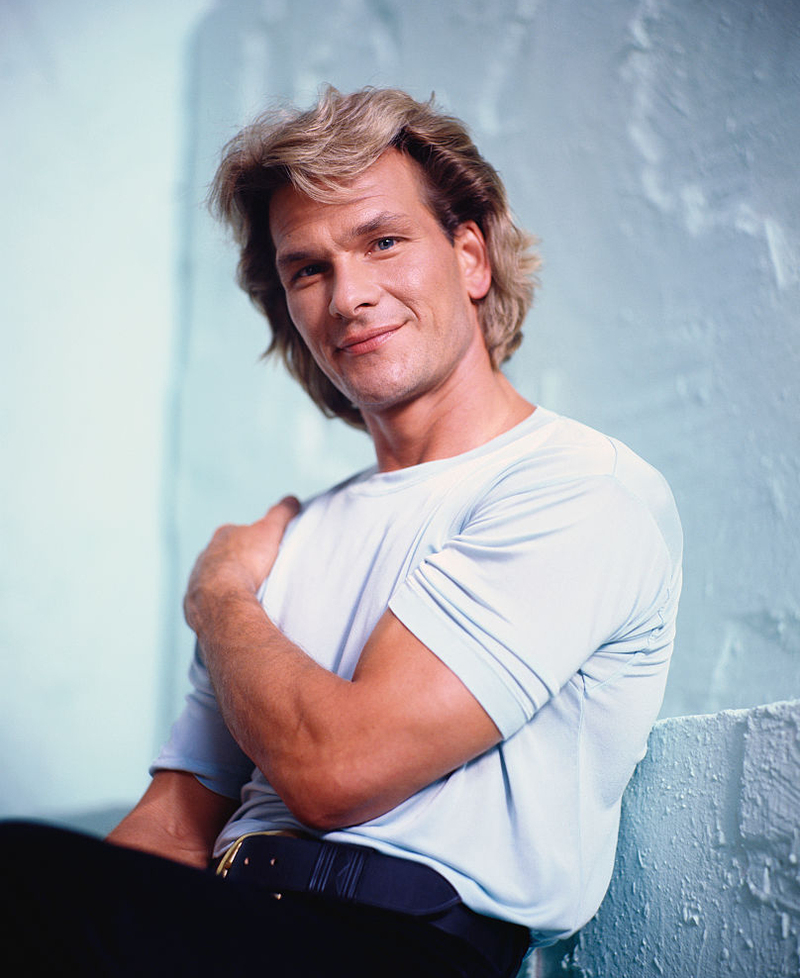
In the 1988 interview, Swayze broke down in tears discussing his father’s death. She also showed him a clip from his movie "Ghost," which made the actor even more nostalgic and had him emotional. Walters knew exactly how to create captivating moments with her interviewees.
Walters and Ellen
To almost everyone, she’s known as a comedian, but Barbara Walters was able to successfully reveal another side of Ellen DeGeneres. In her interview with Walters, DeGeneres spoke openly about the abuse she suffered in the past from her stepfather.
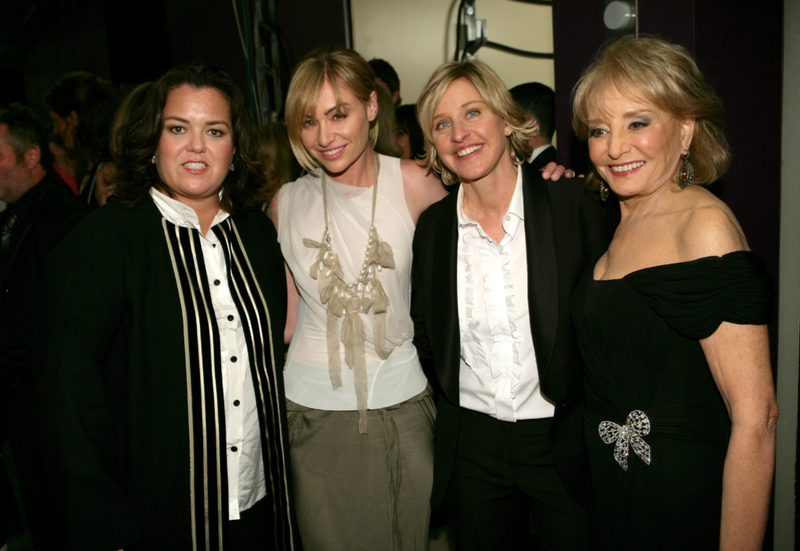
Her parents later divorced, and she and her mother were able to move away. The interview was difficult for DeGeneres, leaving her in tears. Despite the past pain, she confessed to Walters that today she was very grateful for the life she now lives.
Walters and Ringo Starr
Walters’s interviews had now become known for being in-depth, unorthodox, and often emotional. Her interview with Ringo Starr covered the death of John Lennon (his friend and fellow band member), which had occurred less than a year before she and Starr sat down to talk.
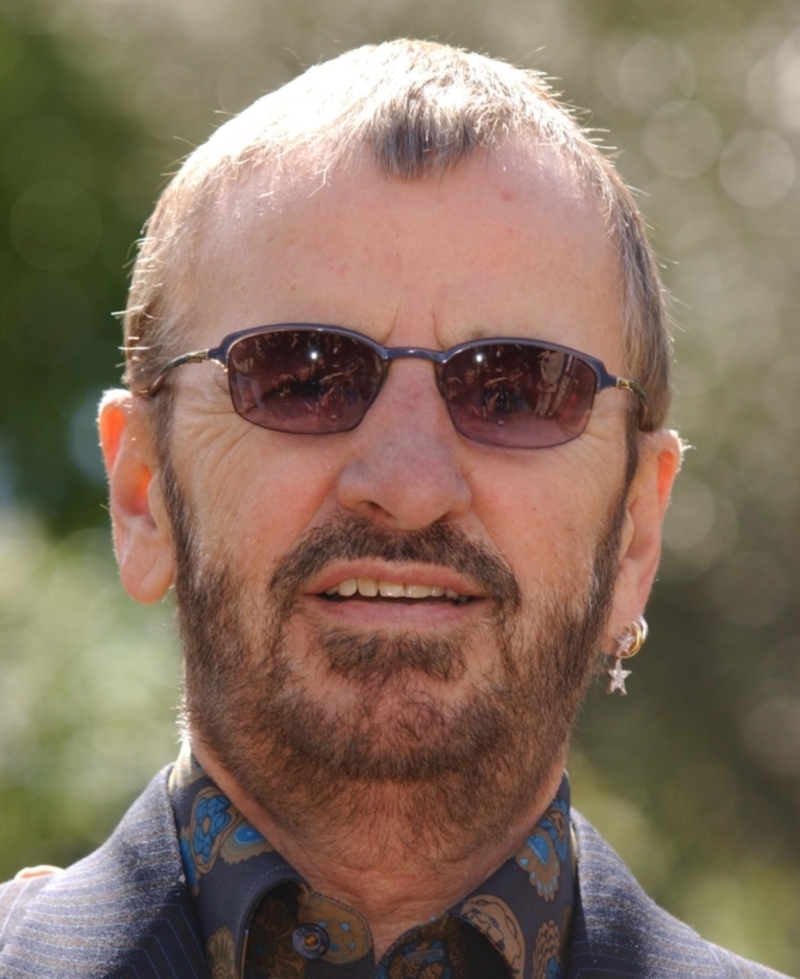
Starr wasn’t blindsided by the questions but did begin to become emotional, at which point he asked Walters if he should continue speaking. Walters then shifted the interview by asking him about his last happy memory with Lennon.
Walters and the General
In 1991, Walters interviewed General Norman Schwarzkopf about the ousting of Saddam Hussein’s troops from Kuwait. Though U.S. troops were still deployed, Schwarzkopf (or “Stormin’ Norman”) spoke a lot about his family, especially his father, who was also a general.
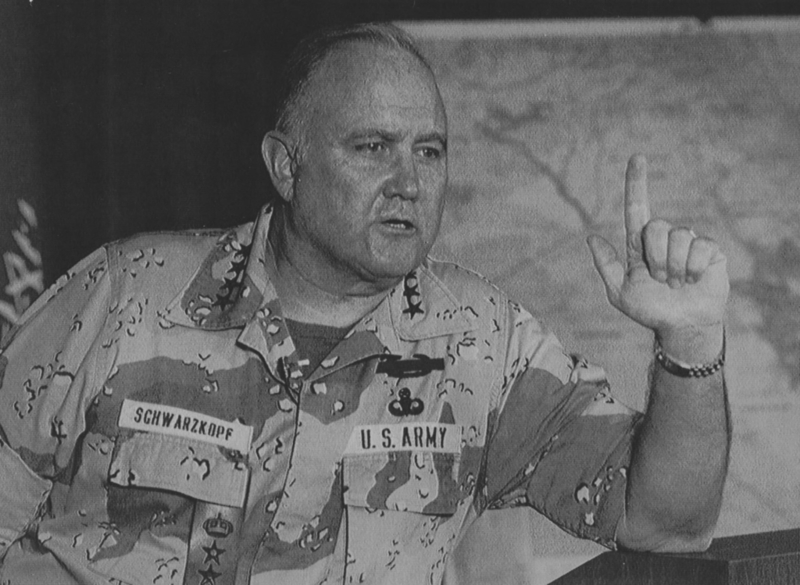
He shared that he thought more about his late father during that time, which brought tears to his eyes. “Generals don’t cry...generals don’t get tears in their eyes,” Walters said “sure they do,” Schwarzkopf answered.
Walters and Patrick Dempsey
Walters interviewed actor Patrick Dempsey who started on the set of "Grey’s Anatomy." Best known for his role as “Dr. McDreamy,” Walters asked him about what it was like becoming a major leading man on the show.
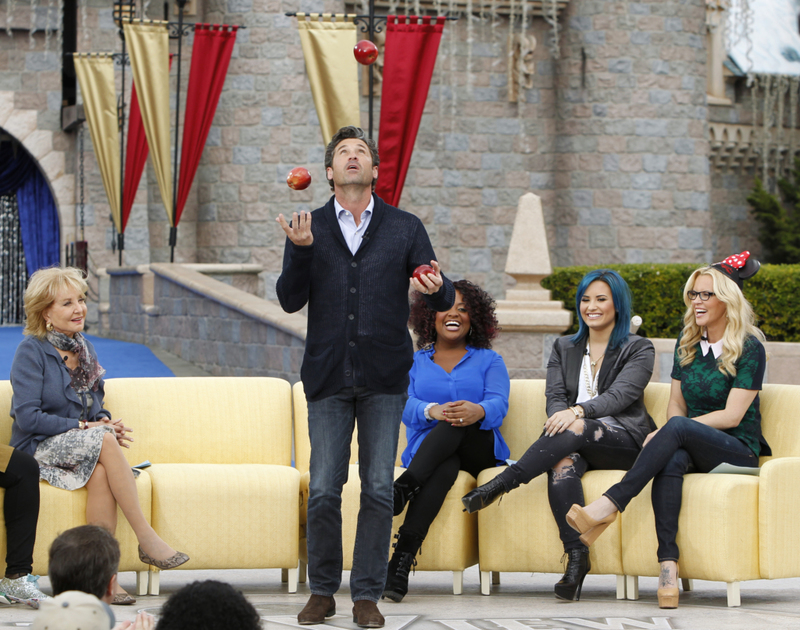
Dempsey demonstrated his hidden talent of juggling to Walters, and she also asked the fluffy questions (about him having great hair, for example). But she also dove into the usual personal questions. Dempsey opened up to Walters and the viewers about a wide variety of topics ranging from his marriage to his struggle with dyslexia as a child.
Walters and Dolly Parton
Known for her talented singing, songwriting, and distinctive looks, Dolly Parton is beloved by many. Walters interviewed the country music star in 1977 and made some strong remarks questioning her appearance. Parton responded by saying that the way she looks is not because of any outside pressure but was strictly a personal choice.

She defended her individuality by saying that, though she took inspiration from her image, she did not want to be like anyone else, a quality that Walters could certainly respect.
Walters and the Teenage Mutant Ninja Turtles
In 1991, Walters had the opportunity to have four interviewees at once, but they weren’t typical celebrities. That’s right; she interviewed Michelangelo, Raphael, Donatello, and Leonardo of the "Teenage Mutant Ninja Turtles." Though it was rather a in jest, Walters asked them if they knew who their parents were, to which one of them burst into tears.

Apparently, she did not consider the conversation with the characters to be particularly riveting, as she said she later regretted the interview with the unusual subjects.
Her Worst Interview
So, in her very long and fascinating career, has Walters ever had a bad interview? According to her, she has. Walters claimed that her worst interview was with actor Warren Beatty in 1990 and said that the actor was just “boring.”
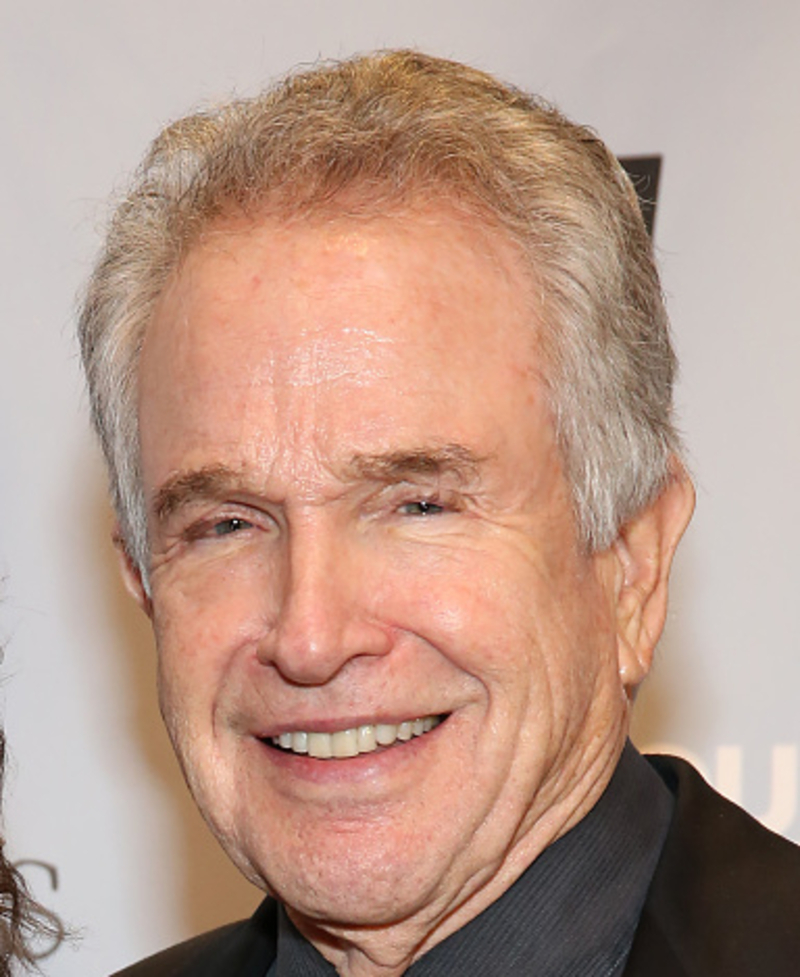
She hinted that Beatty was unprepared and slow in his answers, which made the interview drag as a whole. In fact, she said it was her most boring interview ever, which, considering she has spoken with so many people over the years, seems a solid conclusion.
The Award of a Lifetime
In September 2009, Walters received the Lifetime Achievement Award at the News and Documentary Emmys. Oprah Winfrey presented the award to her and spoke about her pioneering work in the field of TV journalism.

Intrepid, original, and passionately independent, if there was anyone who deserved the prestigious award, it’s Barbara Walters.
Her Legacy Continues
After her retirement, Walters donated $15 million to Sarah Lawrence College. The money was then used to build the Barbara Walters Campus Center, which opened in August 2019. The center is a dedicated space for students to study, socialize, and find inspiration.
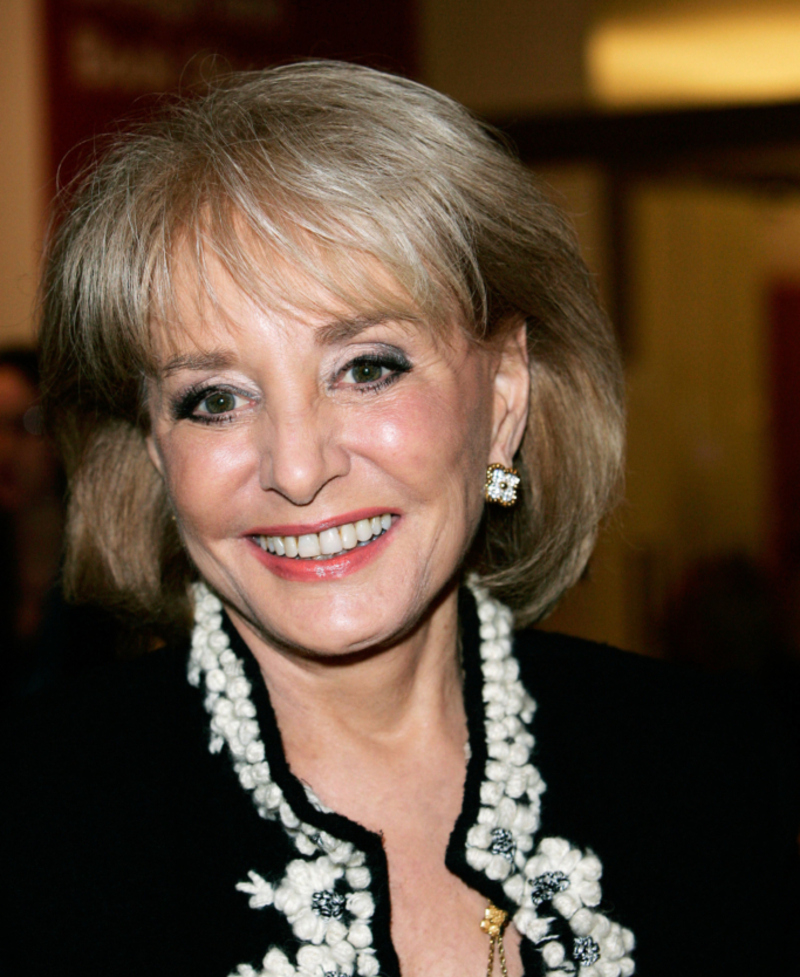
The center also features a reading room that displays the iconic journalist’s works throughout her career.